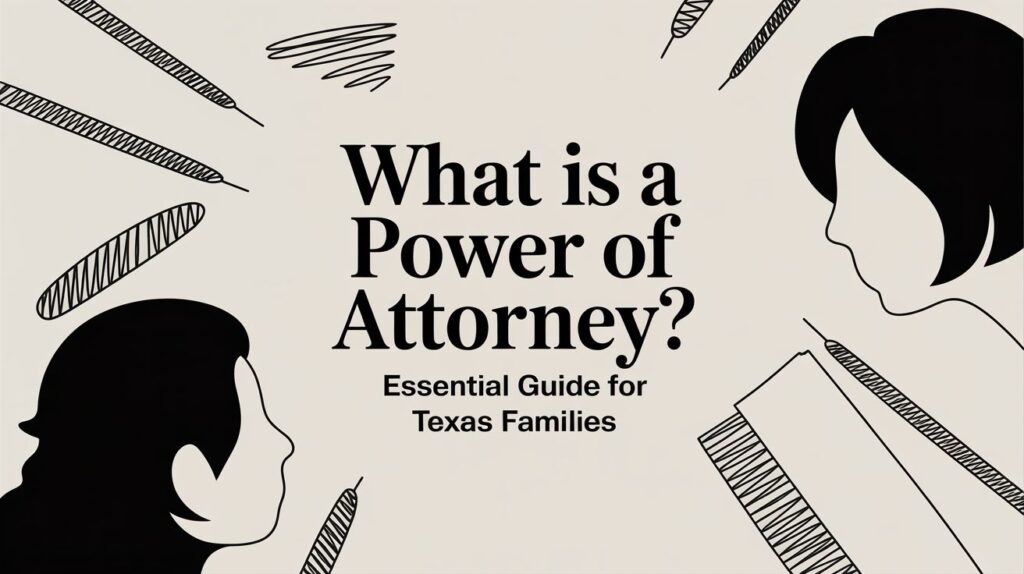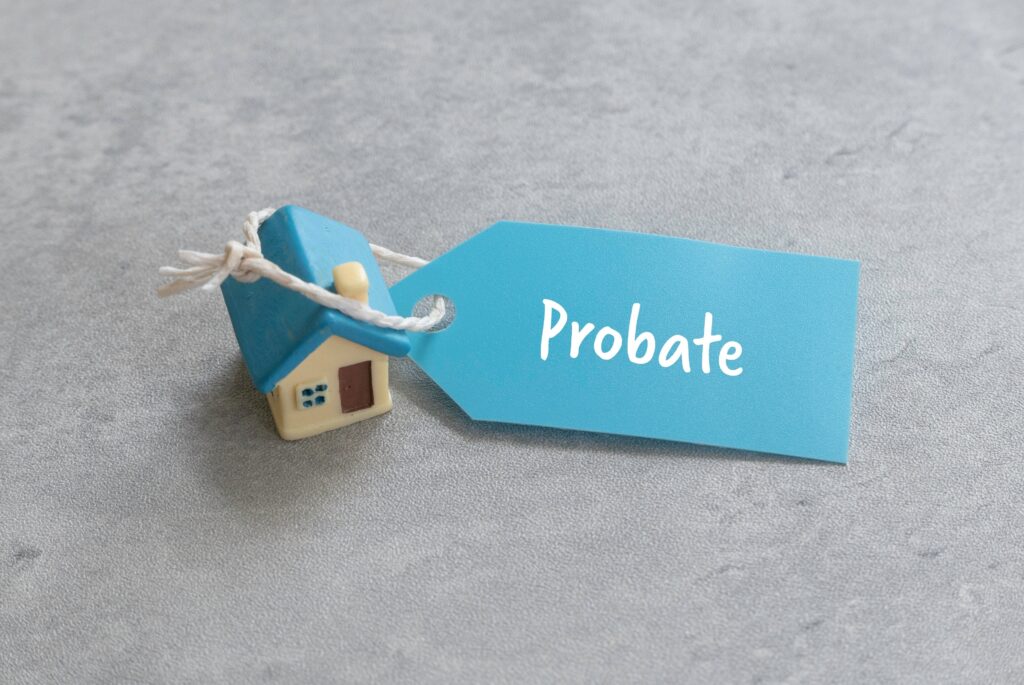An estate refers to the total value of a person’s assets, possessions, and financial holdings at death. It encompasses everything a person owns, including real estate, personal property, bank accounts, investments, life insurance policies, etc. The purpose of defining one’s estate is primarily for the legal and financial processes that occur after one’s passing, such as probate, estate taxes, and distribution of assets to heirs and beneficiaries. Estate planning involves making arrangements to ensure the orderly and efficient management and distribution of these assets according to the individual’s wishes upon death. Small estates may be eligible for simplified probate procedures, which can be more efficient and cost-effective. However, verifying the current small estate threshold and complying with legal requirements is crucial to ensure a smooth estate settlement process. Consulting with a knowledgeable probate attorney in Texas can provide valuable guidance on navigating these procedures correctly.
What is a Small Estate in Texas?
In Texas, the term “small estate” refers to an estate with a total value that falls below a specific threshold. This threshold determines whether the estate may be subject to simplified probate procedures, which can be more efficient, less time-consuming, and less costly than the standard probate process. This means that if the total value of a deceased person’s assets, including personal property, real estate, bank accounts, and other assets, is $75,000 or less, it may qualify as a small estate. It’s important to note that this threshold can vary from state to state, and it might change over time due to legislative updates or adjustments for inflation. Therefore, verifying the current small estate threshold in Texas is crucial by consulting with a legal professional or checking the latest information from the Texas state government or relevant legal authorities.
When an estate is classified as a small estate in Texas, it may benefit from simplified probate procedures, which can streamline the estate’s settling process. These procedures often involve filing a simplified affidavit or application with the probate court instead of going through the more complex and formal probate process required for larger estates. While simplified probate procedures can save time and money, it’s essential to follow the legal requirements and guidelines carefully to ensure that the estate is handled correctly. Small estate affidavits or applications typically include details about the deceased person’s assets, their value, and information about the heirs or beneficiaries entitled to inherit from the estate. Once the court approves the affidavit or application, the assets can be distributed to the heirs or beneficiaries without needing a lengthy court-supervised process.

What Is Probate In Texas?
At its core, probate ensures the orderly distribution of a deceased person’s assets while addressing their outstanding debts and obligations. It is important to validate the authenticity of the deceased person’s will, assuming they had one. The court meticulously examines the will to confirm its legality and adherence to Texas state laws. In situations where no valid will exists, the probate court follows Texas’s intestacy laws to determine how the deceased person’s property should be distributed. This often involves prioritizing immediate family members such as spouses, children, and relatives.
How Does It Work?
The probate process is typically overseen by an executor, a role usually designated in the deceased person’s will. This executor is entrusted with managing the deceased person’s estate. This includes identifying, valuing, and safeguarding the assets, settling outstanding debts, and addressing tax obligations. Furthermore, the executor distributes the assets to the specified beneficiaries according to the will or Texas intestacy laws. It’s essential to recognize that not all assets are subject to probate in Texas. Some assets, such as life insurance policies with named beneficiaries, retirement accounts with designated beneficiaries, and jointly held property with rights of survivorship, pass directly to the named beneficiaries outside of the probate process. This streamlined approach simplifies the transfer of these assets.
While probate is pivotal in facilitating the organized transfer of assets, it can be a complex and time-consuming process. It entails filing various legal documents with the court, notifying creditors of the deceased person’s passing, and addressing any disputes or challenges that may arise during the proceedings. Additionally, there are associated court fees and legal costs. Given the intricacies and potential challenges, seeking legal counsel is often advisable, particularly when dealing with substantial estates or intricate family dynamics. An experienced probate attorney can provide invaluable guidance, streamline the process, ensure compliance with Texas laws, and mitigate potential conflicts among heirs or claims from creditors.
When Is Small Estate Probate In Texas Necessary?
Small estate probate in Texas becomes necessary in specific situations where a deceased person’s estate meets certain criteria. Some instances include:
Estate Size:
Small estate probate in Texas is typically applicable when the total value of the deceased person’s assets falls below a certain threshold. The specific threshold may vary over time due to changes in the law. However, it’s crucial to check the current threshold as it might have changed since then.

No Valid Will:
This probate is necessary when there is no valid will or when someone challenges and deems the will invalid. In such cases, Texas intestacy laws guide the distribution of assets, and the small estate procedure simplifies this process for estates that meet the criteria.
Debts and Liabilities:
The estate should not have significant outstanding debts or liabilities. Creditors may need to pay off substantial debts through the regular probate process.
Assets Subject to Probate:
The assets within the estate should be subject to probate. Some assets, such as those with designated beneficiaries (e.g., life insurance policies, retirement accounts) or jointly held property with rights of survivorship, may bypass the probate process.
No Complex Issues:
The estate should not involve complex legal issues or disputes. The probate process for a small estate addresses straightforward cases where heirs or beneficiaries have no significant disagreements.
The Small Estate Affidavit Process
If the estate meets the eligibility criteria, the next step is to complete the Small Estate Affidavit. Here’s a step-by-step overview of the process:
- Gather Documentation: Collect all necessary documents, including a list of assets, liabilities, and information about the deceased’s family and heirs.
- Prepare the Affidavit: All heirs must complete and sign the SEA form, which should detail the estate’s value, assets, debts, and proposed distribution plan.
- File the Affidavit: Submit the SEA to the probate court in the county where the deceased resided. The court will review the affidavit to ensure it meets all legal requirements.
- Court Approval: Once the court approves the affidavit, the heirs can collect and distribute the estate’s assets.
Benefits of Small Estate Probate
Choosing this probate can offer several advantages:
- Cost-Effective: It is typically less expensive than formal probate, reducing legal fees and court costs.
- Time-Saving: The process is quicker, allowing heirs to settle the estate and distribute assets more efficiently.
- Simplicity: It simplifies the legal procedures, making it easier for families to navigate during a difficult time.
When these criteria are met, the executor or administrator of the estate can choose the probate process. This streamlined procedure involves simplified paperwork and can expedite the distribution of assets to heirs or beneficiaries. It’s essential to consult with a probate attorney or the local probate court to determine if the estate qualifies for this probate and to navigate the process correctly. Please note that legal regulations can change over time, so verifying the current threshold and requirements with a legal professional or the relevant authorities in Texas is crucial.
Final Steps to Complete Small Estate Probate in Texas
Small estate probate in Texas is a practical option for managing modest estates without the complexity and expense of formal probate. Understanding the eligibility criteria and following the proper procedures can ensure a smooth and efficient process, providing heirs with the legal authority to handle the deceased’s affairs. If you believe this probate is applicable to your situation, consulting with a probate attorney can provide valuable guidance and ensure compliance with Texas law.








